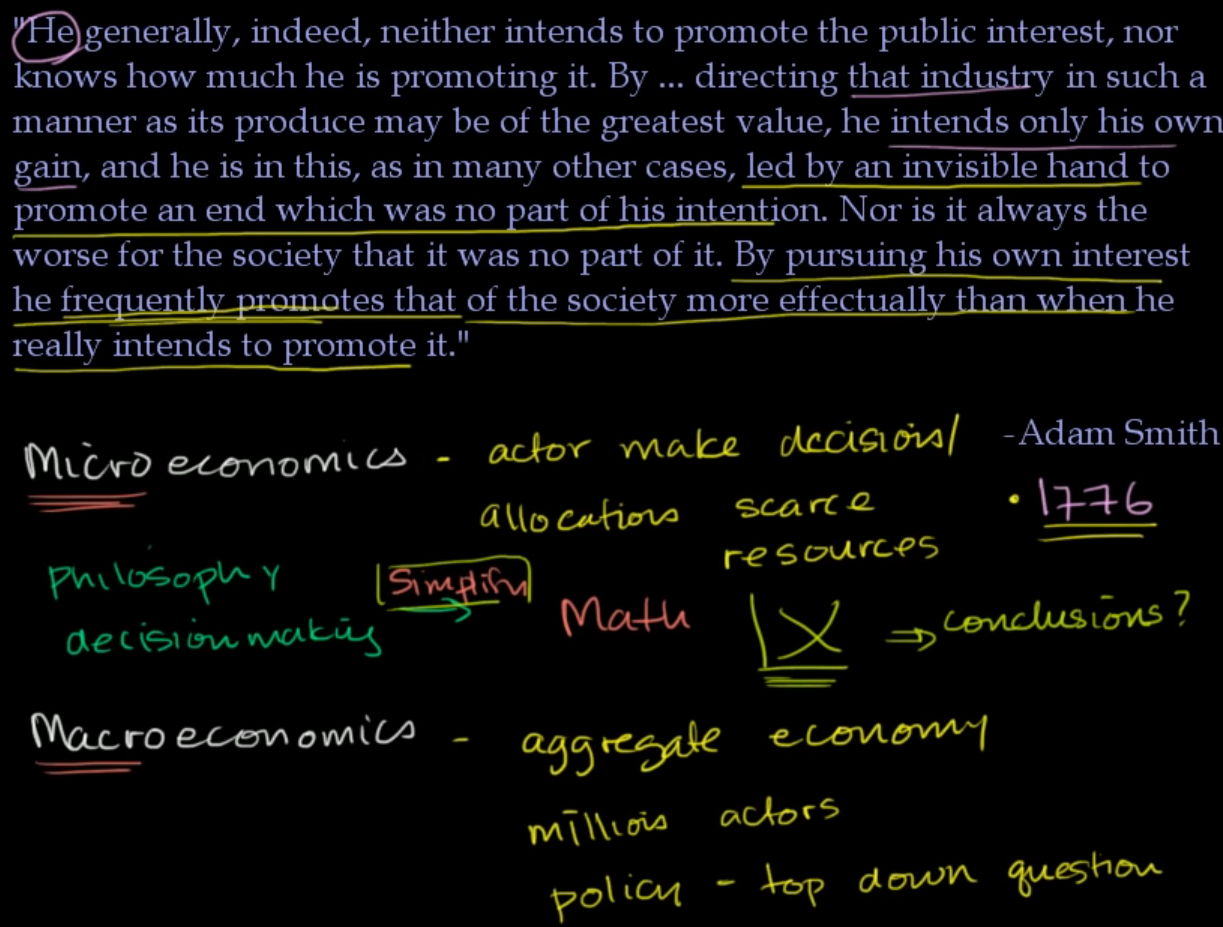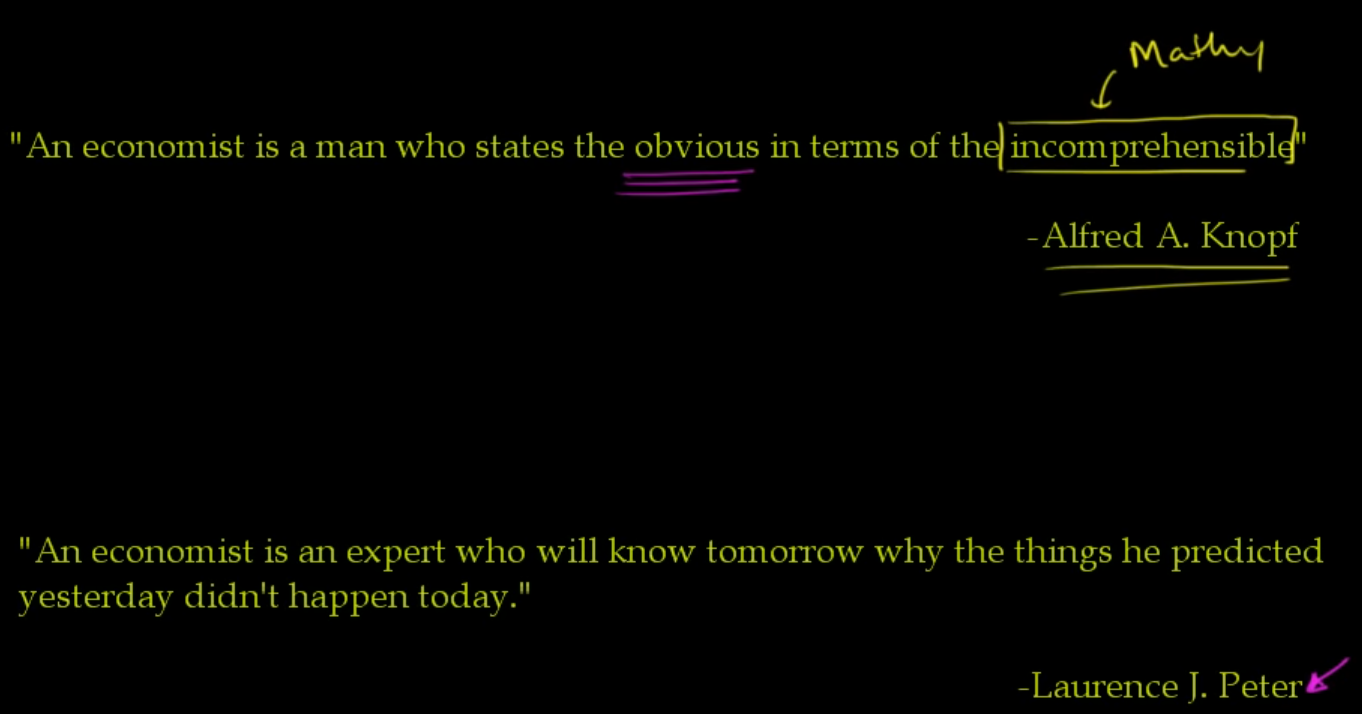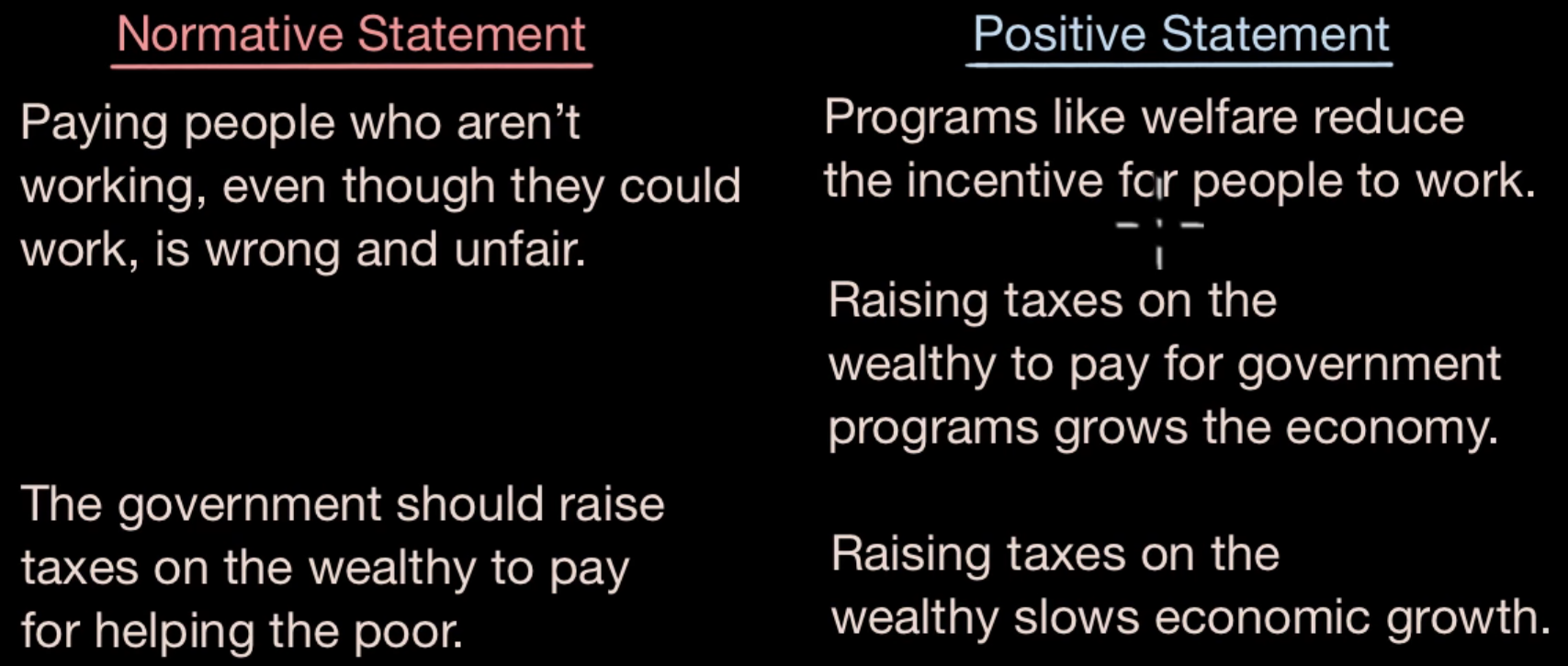Chaptor 1 Basic economics concepts
1. introduction to economics

modern economists tend to divide themselves into these two subjects: microeconomics, which is the study of individual actors. And those actors could be firms, could be people, it could be households. And you have macro-economics, which is the study of the economy in aggregate. And you get it from the words. Micro -- the prefix refers to very small things. Macro refers to the larger, to the bigger picture. And so, micro-economics is essentially how actors make decisions or allocations of scarce resources.
And you hear the words scarce resources a lot when people talk about economics. And a scarce resource is one you don't have an infinite amount of. For example, love might not be a scarce resource. You might have an infinite amount of love. But a resource that would be scarce is something like food, or water, or money, or time, or labor. These are all scarce resources. And so microeconomics is how do people decide where to put those scarce resource, how do they decide where to deploy them. And how does that .. does that affect prices and markets, and whatever else.
Macro-economics is the study of what happens at the aggregate to an economy. We now have millions of actors. And often focuses on policy-related questions. SO, do you raise or lower taxes. Or, what's going to happen when you raise or lower taxes. Do you regulate or de-regulate? How does that affect the overall productivity when you do this. So, it's policy, top-down .. 'top-down' questions.And in both macro- and micro-economics, there is especially in the modern sense of it, there is an attempt to make them rigorous, to make them mathematical. So, in either case you could start with some of the ideas, some of the philosophical ideas, so of the logical ideas, to say someone like Adam Smith might have. So, you have these basic ideas about how people think, how people make decisions.
'philosophy' of people, of decision-making, in the case of micro-economics -- 'decision-making' And then you make some assumptions about it. "all people are gonna act in their own self-interest, or all people are going to maximize their gain", which isn't true -- human beings are motivated by a whole bunch of things. We simplify things, so we can start to deal with it kind of a mathematical way. SO you simplify it, so you can start dealing with it in a mathematical sense. So, this is valuable to clarify your thinking. It can allow you to prove things based on your assumptions. And so, you can start to visualize things mathematically, with charts and graphs and think about what would actually happen with markets. But at the same time, it could be a little bit dangerous, because you are making these huge simplifications, and sometimes the math might lead you to some very strong conclusions. Conclusions, which you might feel very strongly about, because it looks like you've proven them in the same way that you might prove relativity, but they were based on some assumptions that either might be wrong, or might be over-simplifications, or might not be relevant to the context that you're trying to make conclusions about.
So it's very very very important to take it all with a grain of salt, to remember that it's all based on some simplifying assumption. In micro-economics you are taking these deeply complicated things that are the human brain, how people act and respond to each other, and then you are aggregating it over millions of people, so it's ultra-complicated. You've millions of these infinitely complicated people, all interacting with each other. SO, it's very complicated. Many millions of interactions, and fundamentally unpredictable interactions, and then trying to make assumptions on those, trying to make assumptions and then doing math with that -- that could lead you to some conclusions or might be leading you to some predictions.

2. Scarcity
The entire field of economics is based on the idea of scarcity. So what does scarcity mean? It means that there's not enough of something to go around. If we're talking about scarce goods, scarce services, scarce resources, we're talking about things where if there was no cost associated with them, people would use far more of that than there actually is around. So a related idea to scarce resources is it's opposite, which is the notion of a free resource. So this is something that, you could argue, is infinitely abundant or at least in a certain context is so abundant that it feels like people can have as much of it as they want.
3. Normative and positive statements
Normative statements refer to opinions that are a matter of ethics or morals, while positive statements refer to things that can be tested.

4. Economic models